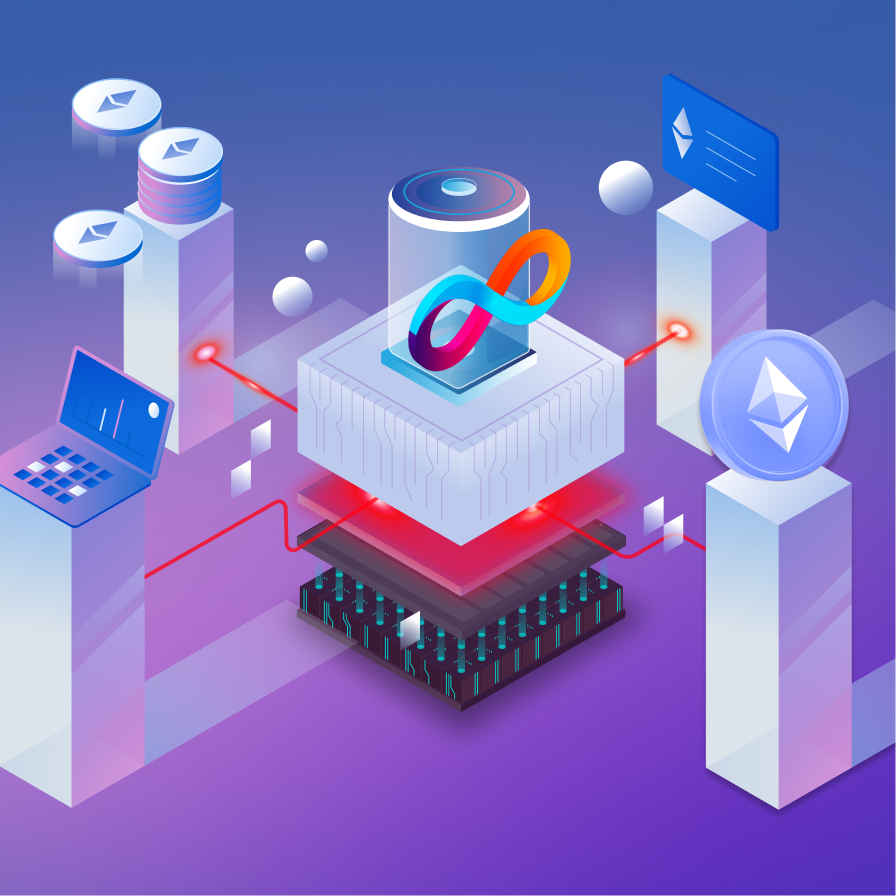
What is ICP?
The Internet Computer is a public blockchain network enabled by new science from first principles. It is millions of times more powerful and can replace clouds and traditional IT. The network – created by ICP, or Internet Computer Protocol – is orchestrated by permissionless decentralized governance and is hosted on sovereign hardware devices run by independent parties. Its purpose is to extend the public internet with native cloud computing functionality.
ICP's vision is that most of the world's software will be replaced by smart contracts. To achieve this vision, ICP is designed to make smart contracts as powerful as traditional software.
A public blockchain with cloud-like power
Smart contracts on the ICP blockchain can utilize hundreds of gigabytes of memory and compute at the full speed of a modern CPU, which is many orders of magnitude more than Ethereum smart contracts. For example, the high performance of ICP smart contracts enables the demo of an AI inference model running on an ICP smart contract, which is uniquely possible on ICP.
Train and run AI models as smart contracts Learn more about ICP performance.

Efficiency comparable to traditional IT
ICP uses advanced science and technology to host smart contract software (network-resident blockchain code) that is millions of times more efficient – enabling it to replace traditional IT.
ICP Sustainability Solutions Learn more about ICP costsICP-hosted smart contracts serve web experiences directly to users
ICP smart contracts process HTTP, and users interact with them directly via web experiences they create. Reverse-gas and secure session technology allows them to function as backend code, unleashing blockchain in a public cloud role, delivering end-to-end decentralization and security. The Internet Computer makes the 'onchain is the new online' paradigm real.
Try out some dapps Deploying your first full-stack dapp

Interoperability
ICP can interface with other smart contract blockchains and traditional Web 2 internet resources via HTTP requests and signing capabilities. For example, Chain-key Bitcoin (ckBTC), a token backed 1:1 by BTC held entirely on the ICP blockchain, is possible because ICP smart contracts can sign transactions. Additionally, the exchange rate canister sends and receives HTTP requests to fetch data from major cryptocurrency exchanges.
Chain Fusion Technology Learn about ICP HTTP outcalls Learn more about ICP contracts threshold signingDeveloper Empowerment
Developers can create truly onchain apps on the Internet Computer, and place them under the full control of decentralized governance in an advancement of the open source paradigm. Moreover, any programming language that can be compiled to WebAssembly can be used, including Rust, TypeScript, Python and Motoko, a revolutionary DSL that leverages the full power of a new 'orthogonal persistence' paradigm where data lives inside programming abstractions such as variables and data types.
INSTANT WEB IDEDeveloper documentation

Chain Key verification
When software in a web browser, or another place, submits a call to ICP, the transaction result in signed by a "chain key" signature proving both that it was produced correctly, and that it's tamper-free. One perpetual 48-byte key can be used to validate responses from the entire network, forever...
Decentralized governance
Networks often evolve slowly and suffer from centralized control. By contrast, ICP is orchestrated by fully-automated decentralized governance, in the form of its protocol-integrated NNS DAO, allowing for frequent upgrades and network re-structuring. The network scales, evolves and adapts in real time.
Scaling via subnets
The ICP network is comprised from multiple subnet blockchains, each of which adds capacity for hosting smart contract compute, while remaining transparent to smart contracts, which interact directly within one global seamless environment. Capacity scales horizontally and transparently.
Sovereign node hardware
Some blockchains are hosted by Big Tech's clouds, which is antithetical. ICP runs on sovereign hardware operated by independent node operators. Node hardware standardization also plays an important role in the workings of the network, unlocking efficiency that is orders of magnitude better.
Onchain parallelism
Traditional smart contracts run synchronously, which means transactions run one at a time, bounding maximum transaction throughput. ICP's contracts run in parallel, while keeping computation deterministic, unleashing unbounded throughput scaling, and constant performance under load.
Deterministic Decentralization
Traditional blockchains combine thousands of anonymous validators to produce consensus quorums, but many are run by the same operator, and run on the same clouds. ICP uses its governance to combine nodes into subnets using deterministic decentralization, allowing replication to be slashed.
WebAssembly
The ICP execution environment leverages the WebAssembly virtual machine. This enables developers to create smart contracts using any programming language that compiles to Wasm byte code, unlocking far greater flexibility and developer productivity. WebAssembly also helps unlock massive performance and efficiency.
Reverse gas
The reverse gas model allows developers to prepay gas fees by loading their smart contracts with 'cycles,' enabling users to interact without needing tokens or a wallet. This simplifies entry into Web3, offering a user experience similar to traditional web applications and facilitating easier adoption. This model provides a state-of-the-art user experience.
Smart contracts serve web assets
Users can interact with smart contracts through a standard browser without needing plugins or custom software, enabling a state-of-the-art user experience.
